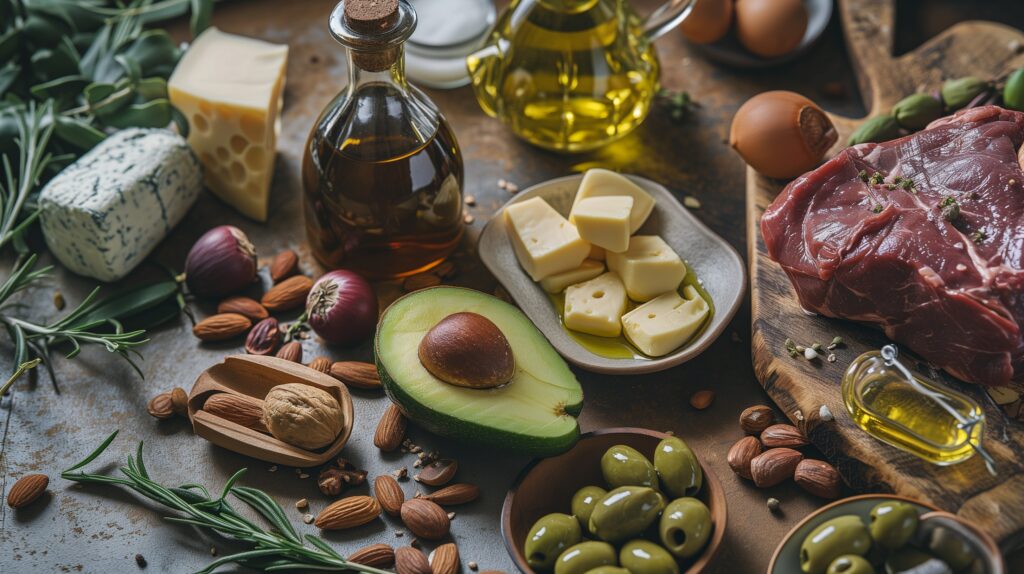Table of Contents
Embarking on a journey to better heart health requires a keen understanding of the foods we consume. One notorious culprit in the battle against cardiovascular disease is trans fat. Trans fats are known to increase LDL (“bad”) cholesterol and decrease HDL (“good”) cholesterol, thereby significantly raising the risk of heart disease. In this comprehensive guide, we’ll explore how to dodge the trans fat trap, choose heart-healthy oils, and sidestep the pitfalls of processed foods. With practical tips and a nod to the innovative ‘My Heartlet’ app, you’ll be well on your way to a heart-healthy lifestyle.
Dodge the Trans Fats Trap!
Trans fats are a form of unsaturated fat that have been chemically altered to prolong the shelf life of certain foods. Unfortunately, this convenience comes at a high cost to our health. To avoid trans fats, it’s essential to read food labels meticulously. Look out for terms like “partially hydrogenated oils,” which are a major source of trans fats.
When dining out, be cautious as many restaurant foods, especially fried and baked goods, can be high in trans fats. Opt instead for dishes that are baked, grilled, or steamed. Remember, no amount of trans fats is considered safe for heart health, so it’s best to eliminate them from your diet entirely.
Incorporating trans fat-free choices isn’t just about avoiding certain foods; it’s also about educating yourself. The FDA’s ban on trans fats, which came into effect in June 2018, is a significant step forward. However, vigilance remains key as some products may still contain trans fats. Check the FDA’s resources for up-to-date information on trans fat regulations.
Choose Heart-Healthy Oils

Replacing trans fats with heart-healthy oils is a pivotal step in improving your cardiovascular health. Oils rich in unsaturated fats, such as olive, canola, and avocado oil, are excellent choices. These oils not only add flavor but also come with health benefits, such as improving cholesterol levels and reducing inflammation.
When cooking, opt for oils with high smoke points like canola or grapeseed oil to ensure that the fats do not break down and become unhealthy. Cold-pressed or extra-virgin oils are ideal for salads and dishes that do not require heating, helping to preserve their nutritional integrity.
Additionally, incorporating omega-3 fatty acids found in fish and flaxseeds can further protect your heart. The American Heart Association suggests eating fish at least two times per week to gain these benefits. For vegetarians or those who don’t consume fish, supplements or fortified foods can serve as alternatives.
Sidestep Processed Food Pitfalls
Processed foods are often laden with trans fats, making them a significant threat to heart health. To sidestep these pitfalls, focus on a diet rich in whole foods, such as fruits, vegetables, whole grains, lean proteins, and legumes. Limiting processed snacks, frozen meals, and fast food can drastically reduce your trans fat intake.
Here are some tips to help you avoid trans fats in processed foods:
- Always read the nutrition labels and ingredient lists for hidden trans fats.
- Prepare meals at home using fresh ingredients, which allows you to control what goes into your food.
- When grocery shopping, make a beeline for the perimeter of the store where fresh produce, meats, and dairy are typically located, rather than the aisles filled with processed foods.
- Use the ‘My Heartlet’ app to track your meals and monitor your intake of unhealthy fats.
By making smarter food choices and cooking at home more often, you can significantly lower your trans fat consumption and take control of your heart health.
In conclusion, trans fats pose a substantial risk to cardiovascular health, but with informed choices and mindful eating, you can successfully avoid these harmful fats. Embrace heart-healthy oils, minimize processed food intake, and make use of tools like the My Heartlet app to stay on top of your dietary habits. With each step, you’re not just avoiding trans fats; you’re paving the way for a healthier heart and a happier life. Start making these changes today, and your heart will thank you tomorrow.
